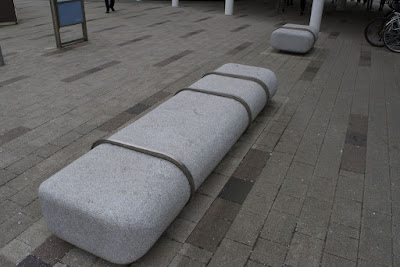I have wanted to point out something for a while. The two universities in this city have become businesses; they do not yet attach 'p.l.c.' to their titles but that is what they are, weird but I think true. They have adopted a corporate style, advertise like the large utility companies or media conglomerates. They promote a discernible 'business model'. Well, what is wrong with that? It is only realistic policy. After all, education is just like any other business when one comes down to it.
Of course, I do not believe it is. But I am hopelessly old fashioned now. This city grew on coal and then engineering, making armaments and ships. Coal and iron ore built ships. Now having suffered enormous industrial decline and closures – industrial history in this part of the world has been landscaped with grass – education and the tens of thousands of students the universities and colleges have attracted, is now the new industrial base. The money this attracts is quite easily more than in the dying days of industrial power, even allowing for inflation. It's a winner in lots of ways.
Except one important way that is growing. The privatisation and control of public spaces.
Take Northumberland Road.
In theory, if not fact, this view is of a public road, what was once quaintly called 'the [Queen's, King's] High Road. For centuries blocking or hindering anyone, be they ever so humble, using such a highway was an offence. I don't know if Northumberland Road exists as a public right of way any longer. I fear its days may be numbered. If they are, what then?
It would be misleading of me to write that this arcane legal definition is what is really troubling me. No, it's the dreadful 'corporate' feel that has spread out over these spaces that concerns me. Things such as these:
I have never yet seen anyone sitting on one of these things. They are very popular with designers. I have found them in other places, usually associated with offices, insurance and banking, that kind of thing. All this 'hard' and 'soft' landscaping achieves is to iron out eccentricity, nuance and the quirky and organic nature of spaces. In large cities the preferred option now is for everywhere to look like everywhere else, no matter. It seems the 'powers that be' want uniformity and a particularly uninteresting, soulless environment. It always gives me the impression I am somewhere I do not belong and the places themselves seem like machines. Here the idea is to give the impression of money, or at least, look interested in the thought.
Universities were once entirely about ideas, all kinds from classics to economics, music and philosophy, engineering and science. But above all knowledge. Now the big idea is the money business.





